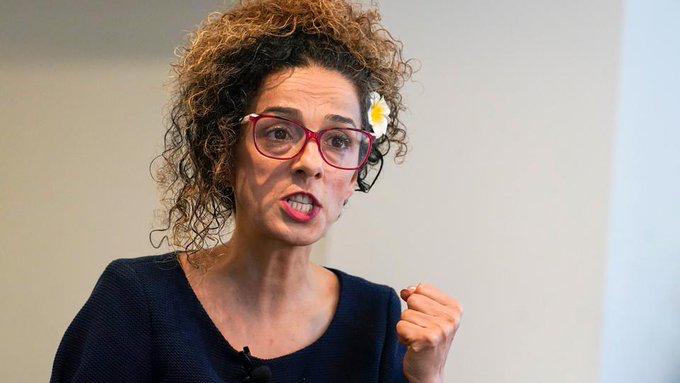Source: Politiken Denmark
In our conversation this evening, I tell Masih Alinejad that, upon advice from Danish police, we have decided to move the planned Politiken event with her from a Copenhagen cinema with winding corridors and people weaving around each other and multiple cinema halls to Politiken’s House.
Masih Alinejad will appear in Copenhagen alongside Belarusian opposition leader Sviatlana Tsikanovskaja at Tuesday’s reader meeting at Politiken’s House. It’s only the third time it’s happened. The first time was in Davos about a year ago, the second was at the annual security conference in Munich in February.
They share a fate as persecuted democracy advocates, continuing to fight for their cause from their respective exiles at great personal risk. Both under constant protection. In her new organization, “World Liberty Congress,” Masih Alinejad tries to connect democracy advocates from around the world.
“Dictators like Putin, Khamenei, Xi Jinping, Maduro in Venezuela, and a host of African dictators are good at helping each other with surveillance technology, military equipment, information exchange, and mutual support in places like the UN,” she says. “They are better at sticking together than democracies.”
“In my organization, I’m surrounded by a lot of people who share neither skin color, culture, ideology, nor anything else. The only thing we have in common is the fight against dictators.”
Shortly after, she adds, “It also shows me that I’m not alone.”
What is your main message in Copenhagen?
“I want to warn the world’s democratic leaders that they must choose the right side of history because there are only two sides: a right one and a wrong one.”
As an Iranian woman, Masih Alinejad has one more wish for Copenhagen: to have apartheid against women recognized as a crime on par with racial apartheid.
“Together with women from Afghanistan, I will seek support for a new campaign called ‘United Against Gender Apartheid.'”
As she speaks, a large flower sways from her hair. A flower that draws attention to the woman’s hair, which is forbidden to show publicly in Iran. But it’s also a flower that carries Masih Alinejad’s own hope: a symbol that ideas can outlive people who may end up dying for them.
